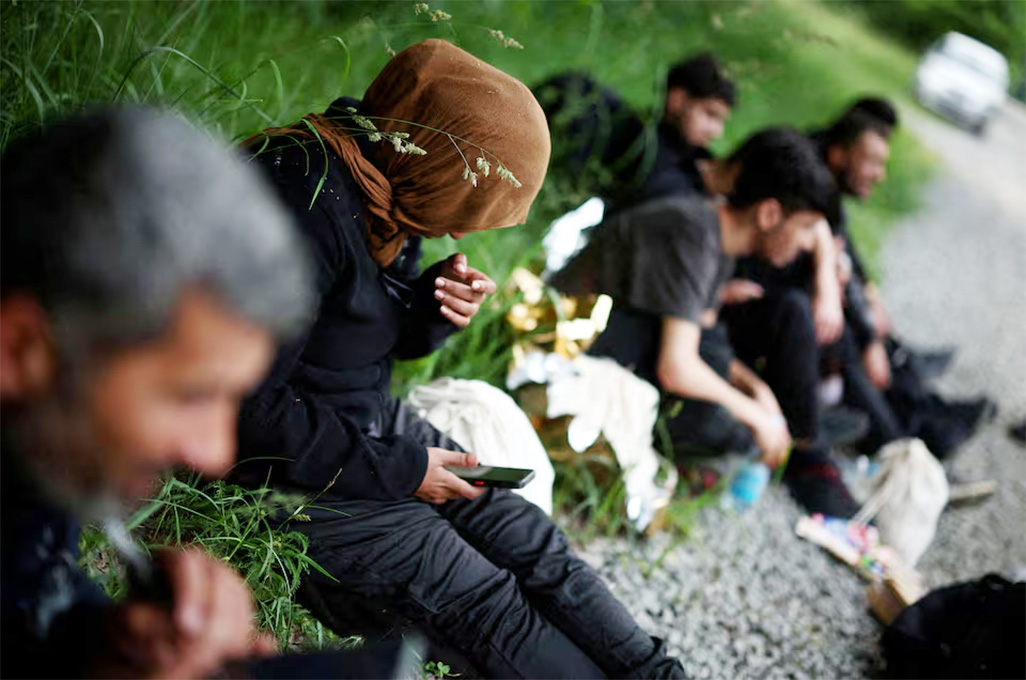European Union leaders arriving at a summit in Brussels on Thursday said that the bloc needed tougher policies to expel illegal migrants, but acknowledged that agreeing new steps would take time.
Poland and Baltic countries have said they would also call for a common EU stance against Russia and Belarus using migrants as a weapon against the EU.
Immigration is a highly sensitive topic in many of the bloc’s 27 member states, even if irregular migrants arriving in Europe last year were less than a third of the 1 million seen during the migration crisis in 2015, and numbers fell further this year.
“We need to see collectively how we can limit the flow of asylum seekers and stimulate returns,” Dutch Prime Minister Dick Schoof said. “It will be a process of trial and error, but it’s important that we look what we can do.”
The conservative Dutch government is weighing a plan to send rejected African asylum seekers to Uganda.
Hungarian Prime Minister Viktor Orban said on X: “The peoples of Europe have had enough of illegal migration, failed economic policies and the bureaucrats in Brussels.”
The EU agreed in May on a new set of rules and processes for handling migration, called the Migration Pact, but it is not due to be fully implemented until mid-2026, leaving the bloc in a complicated transition period.
Germany, wary of a public opinion backlash against irregular migration, has introduced border controls with all its neighbours, suspending the freedom of the passport-free Schengen zone. France, Denmark, Sweden, Austria, Italy and Slovenia have also introduced border checks.
And in a policy U-turn, the European Commission said this week it would propose that migrants who have no right to stay in the EU be sent to “return hubs” in countries outside the EU, with which the bloc will strike deals.
On Thursday, German Chancellor Olaf Scholz said he expected disagreements on immigration among member states to continue, adding that, for a country as big as Germany, asylum processing hubs outside the bloc would only be able to handle a fraction of requests.
“One thing is quite clear, if the common European asylum system is implemented more quickly now, if we make progress in terms of efficiency, for example with regard to the return directive, then that will help,” he said.
He and other leaders stressed the ageing continent did continue to need immigrants to come in and work in the bloc.
Separately, Poland wants to temporarily suspend asylum rights for migrants crossing over from Russia-ally Belarus, in a move many see as a violation of the EU’s charter of fundamental rights.
Warsaw says it draws its inspiration from Finland, which, faced with migrants pushed across the border from Russia, suspended asylum rights in July.
The number of people arriving at the EU’s border with Belarus surged 192% year-on-year in January-September to 13,195.







Click here to change your cookie preferences